Sirigu (SWOPA) Still Rising
Sirigu Women Organisation for Pottery and Art (SWOPA) has won the Tourist Attraction of the Year for Upper East Region. Under the auspices of the Ghana Tourism Authority, SWOPA, as the community initiative is called, chalked the feat last week at the tourism awards programme held in Bolgatanga.
Focused on traditional art and craft, Sirigu has easily become a destination of choice in the northern half of Ghana. It has attracted all classes of people from around the world. Whilst serving as UN Secretary-General, Kofi Annan actually found time to pay the SWOPA centre a visit. Furthermore, the Sirigu designs have become so well-known that portions of the Golden Tulip Hotel and Mmofra Place in Accra have been decorated with the design.
For those of us who are familiar with the Sirigu success story as well as the inspirational leadership provided by Madam Melanie Kasise this latest feat is not surprising.
Having had a teaching career spanning nearly four decades, Madam Kasise was eventually faced with the inevitable – retirement. As she went through her old boxes one day, she found her long- forgotten undergrad long essay. Her project work was on reviving the dying wall designs of Sirigu. She brought out the book, dusted it and said no to a boring retirement life. Madam Melanie Kasise has never looked back since.
In 1997, when her colleague retirees were coasting to their last days on earth, Madam Kasise’s new life had just begun. She mobilised 54 local women to form the Sirigu Women Organisation for Pottery and Art (SWOPA). Today, the association has become a vibrant umbrella body with about 300 young and old women. The members learn and practise trade in traditional wall designing, pottery, basketry canvass, painting and Tye and Dye. One exciting aspect is that visitors can also come for workshops in any of these skills.
In addition to arranging walking tours around the community, SWOPA also provides simple but quality tourist services. The compound houses a museum, workshop, restaurant and a traditionally styled 5-room guesthouse. By popular demand from tourists, also a five-bed dormitory caters to group visitors.
It has been my long desire to spend a weekend at the SWOPA Centre. To get to Sirigu, I moved from Bolgatanga, the Upper East capital, connecting through Vea and Zokko. An alternative route is branching off at Kandiga junction on the Bolgatanga-Navrongo Highway and driving for another 17km. I checked into one of the air-conditioned rooms built a la local style. After settling in, I asked one of the SWOPA tour guides to accompany me on an evening stroll. We took a short cut to town. Our walk took us across dry river beds. Dominating our surrounding were giant trees such as Baobab, Dawadawa and Kapok. It was not exactly a lonely walk as we met other folks on foot and on bicycles.
The moon was full and shiny, and everything in sight was bathed in a glorious, bluish
hue. As we walked under trees, the moonlight filtered through branches and leaves
before splashing us. This produced a romantic, neon effect. Indeed, the moonshine combined with the savannah landscape to present an Arabian Night scene.
We found the centre of Sirigu abuzz with activity. It happened to be the evening of a market day. At the main lorry station, heavily loaded trucks were leaving for Kumasi and Accra. They left with some pottery, livestock and Dawadawa. A couple of teenage passengers looked eager to start the journey that will take them away from home. All they carried were a few personal effects bagged in black polythenes. It was easy to predict that, these young men and women are on their way down south to Kumasi or Accra to gamble with destiny.
The day’s market session is nearly over yet die-hard traders do not appear to be packing off. I saw bottled kerosene, local gin, sweets and cigarettes for sale. I also saw bread, grilled meat and fruits. In need of a snack, I settled for some hot koosey. My guide, offered to buy me pito to wash it down with. Excellent idea! But I told him not to bother since the local beer featured prominently in my plans for the next day.
We continued our night walk and encounter a crowd of children at the video centre.
They have queued to watch “London Get Problem”, one of Agya Koo’s video films. Next
to the video house is a mobile phone retail centre which pleasantly surprised me. Eagerly, I made a few calls and signalled Ferreol for the return walk. Back at the SWOPA centre, I was served with a bucket of water for my bath. I had a good night’s sleep, except for one disappointment –
I couldn’t dream of “Arabian Nights” like I had planned to.
To be continued…
By: Kofi Akpabli
UB40, others rock at three-day Stanbic Jazz Festival
On the first day the 2019 Stanbic Ghana Jazz Festival, legendary music group UB40 wowed the audience with songs from their repertoire.
They did songs like ‘If It Happens Again I’m Leaving’, ‘Cherry Oh Baby,’ ‘Kingston Town,’ ‘Fijian Sunset,’ ‘Many Rivers To Cross’ and ‘Red Red Wine.’
The nine-piece English band dished out great reggae tunes from their repertoire that got almost everybody singing along at La Pleasure Beach.
With four big screens mounted by the sides of the performance area, the audience not close enough to the players could still see every detail of action on the stage.
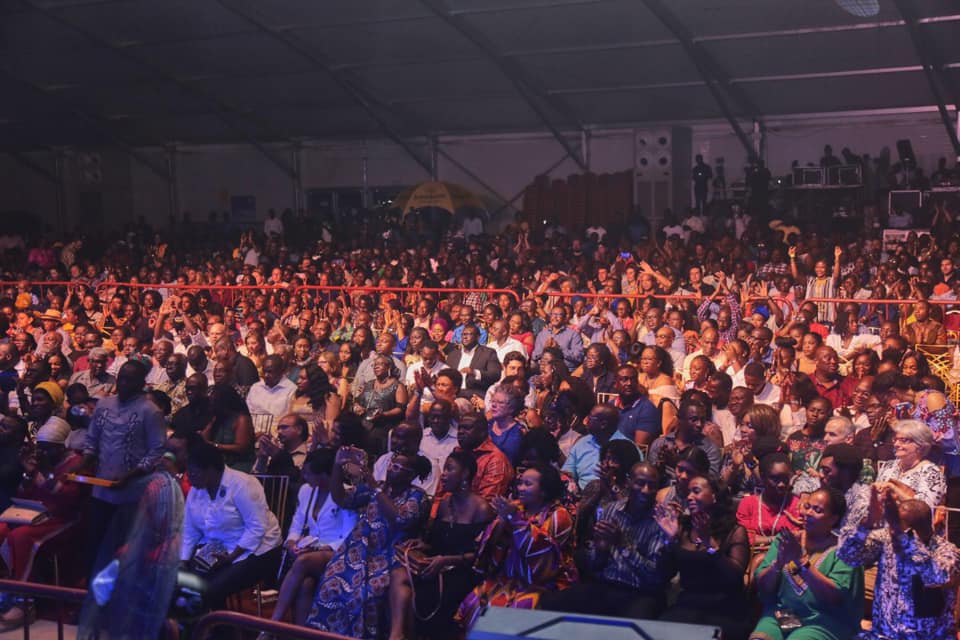
The Blue Rhythms, an in-house Stanbic Bank band was the first to perform.
Daughter of Pat Thomas, NanaYaa came on stage next to serve the audience with her craft.
She did Ella Fitzgerald’s old jazz classic ‘Summertime’ and rendition of a Nii Oblie original called ‘Accra Is Sweet.’
Ghanaian guitarist Akablay and his Abiza Band with their Nzema groove, also did works from his five albums and then roped in his ever popular ‘Take Away’ which features Cabum.
The show continued on Friday with more enthralling performances with other artistes like Saxophonist Steve Bedi and singer reggae artiste Knii Lante.
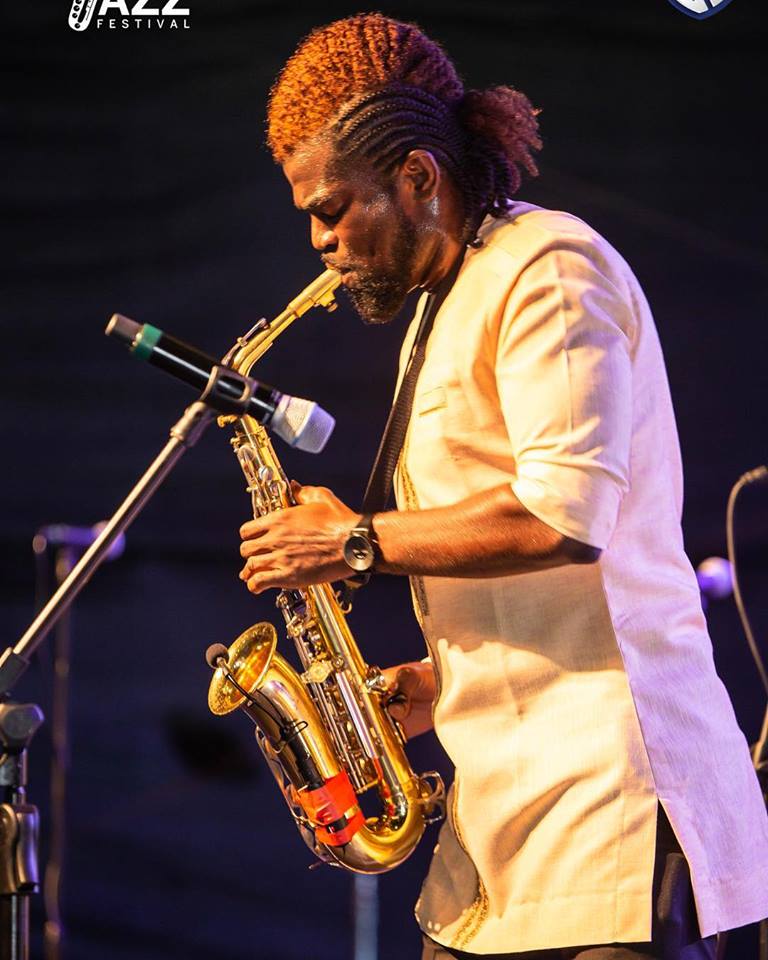
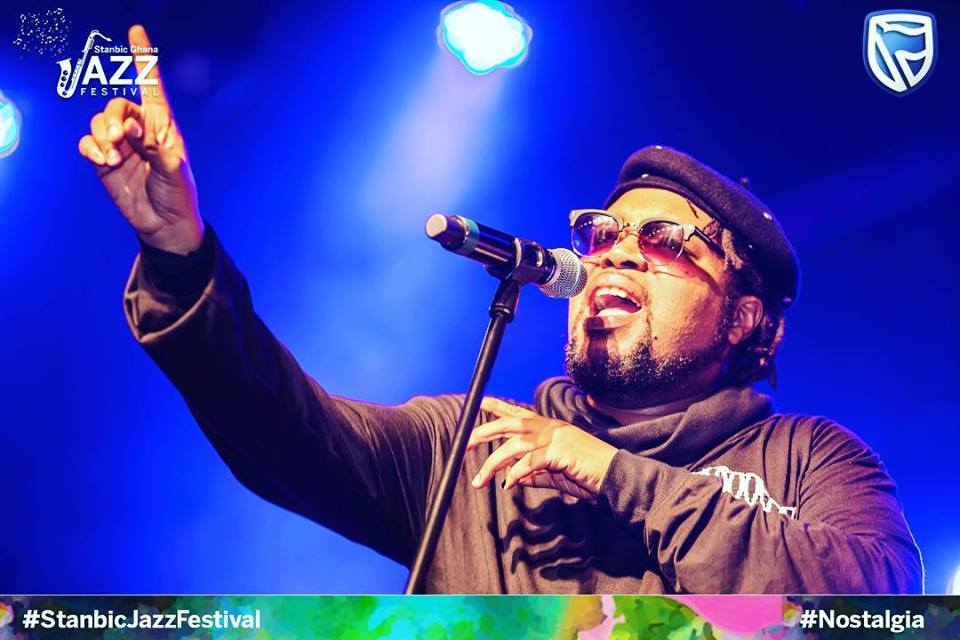
The three-day Stanbic Ghana Jazz Festival ended on Saturday, March 2 with a bash at the Fantasy Dome at La in Accra.
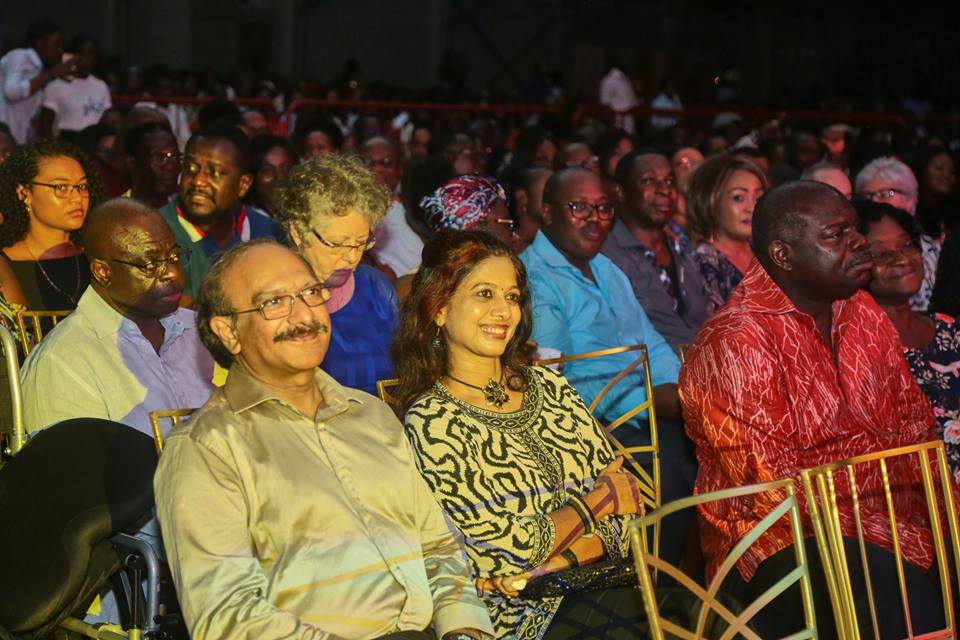
The show featured SSUE, Francis Osei, Wanda Baloyi from South Africa, Kyekyeku and the three festival headline acts: Salif Keita, Richard Bona and UB40.
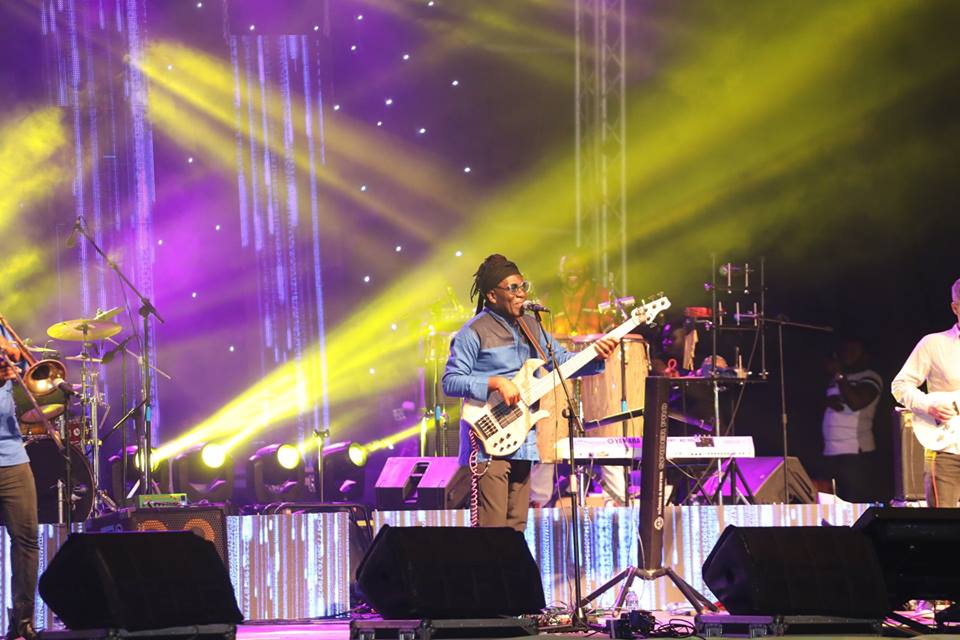
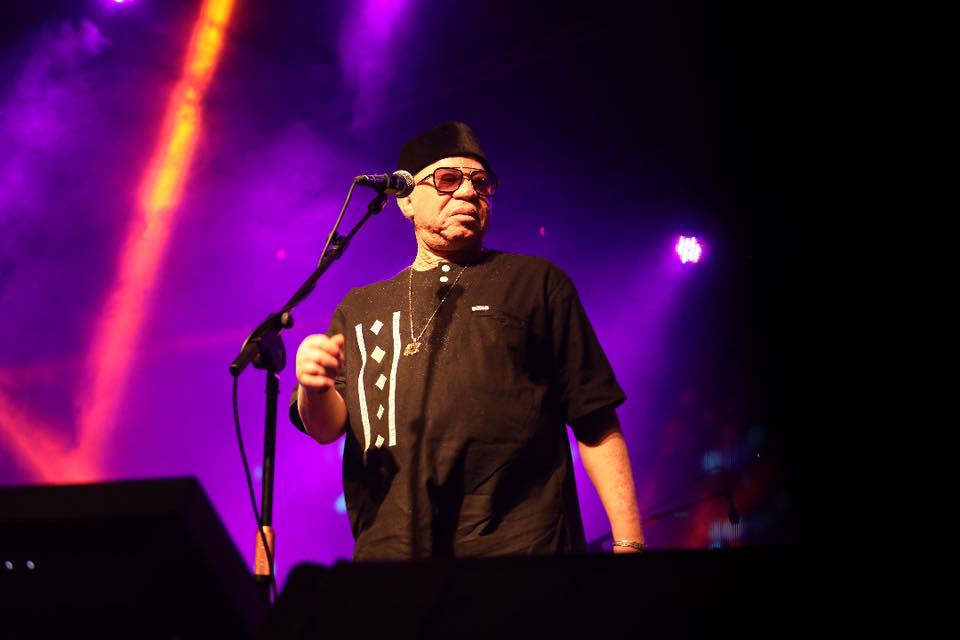
Source: Citinewsroom
Heritage Caravan: Day 3 – Yaa-Naa Abukari Mahama hosts at Gbawa Palace
Yendi came alive on Monday when the newly enskinned Yaa-Naa, Abukari Mahama hosted patrons of the Heritage Caravan at the Gbewa Palace.
It was a colourful durbar of many remarkable cultural display.
Yaa Naa Abukari Mahama II welcomed the team with kola nuts which signify his acceptance of their visit.
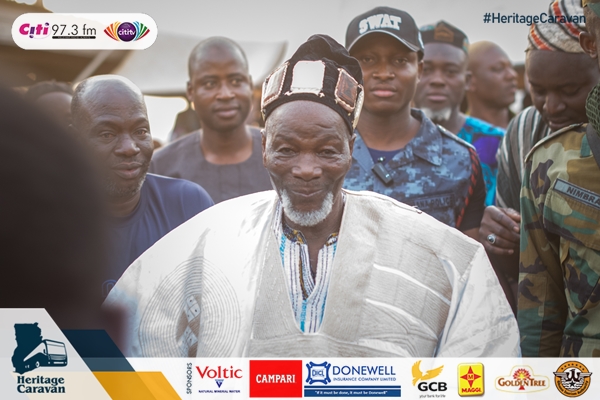
If you think Borborbor, Adowa and Kpanlogo were the only vibrant dances in Ghana then you are wrong because the Damba, Bamaaya, Takai, and Billa dances are close competitors.
These dances which are components of the rich Dagbon heritage were showcased at the durbar.
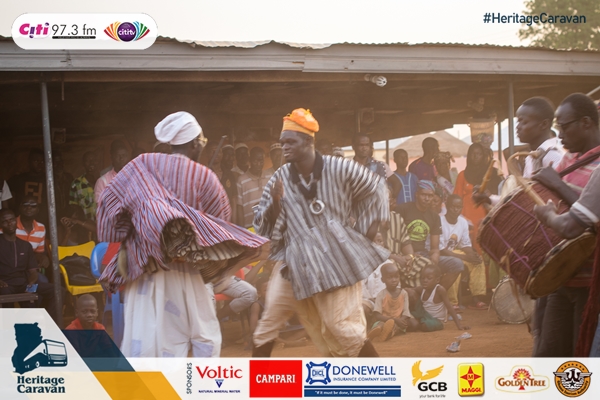
Patrons on the Heritage Caravan joined the dance warriors for some lessons.
The Yaa Naa joined patrons as they danced to the vibrant transitional tunes of the Dagbon people.
The Heritage Caravan’s aim was to pay homage to the overlord of the Dagbon state.
The team was led by Citi FM and Citi TV‘s Chief Executive Officer, Samuel Attah-Mensah who is also sub-chief in Tamale with the name, Malizali Naa.
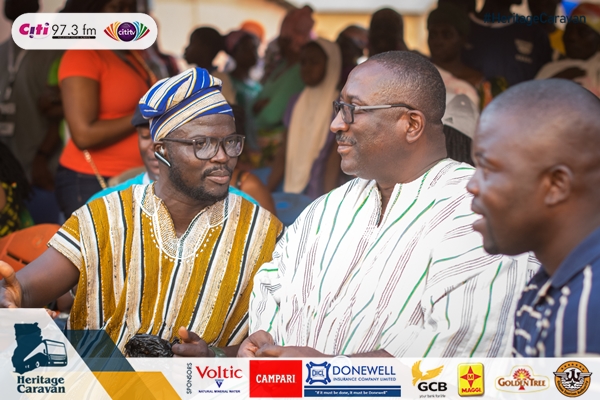
Citi FM and Citi TV‘s General Manager Bernard Avle was also around.
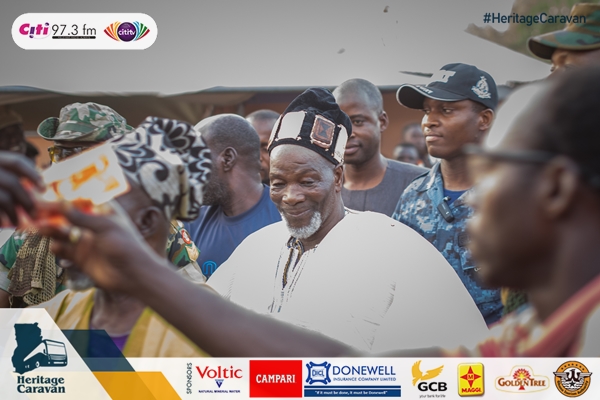
The visit to the Gbewaa Palace was to pay homage to the overlord of the Dagbon Kingdom and also to learn about the heritage of the Dagbon people.
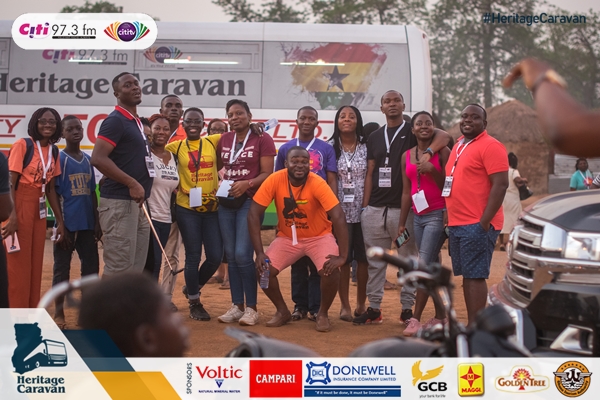
About the Heritage Caravan
The Heritage Caravan gives patrons an exciting experience, as they tour various regions and exciting destinations of the country.
This year, the Caravan will be visiting 14 of the 16 regions but will be sleeping in 8 of them.
It’s an opportunity for Ghanaians to know their country as Ghana in the month that Ghana celebrates its independence.
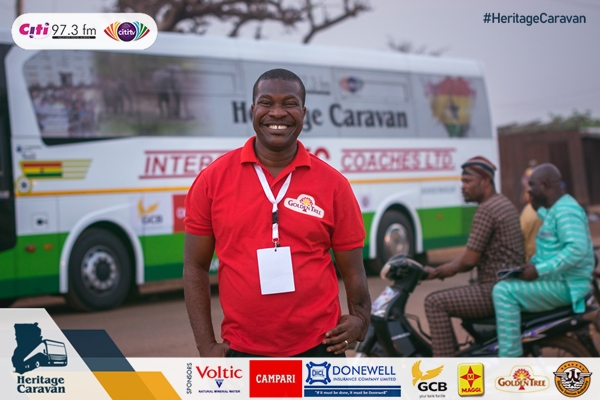
The Heritage Caravan has been running for the past four years.
Over the years, patrons have been taken to the Stilt Village in the Western Region, Nzulenzu, the Adaklu Mountain in the Volta region, the Manhyia Palace in the Ashanti Region, the Boabeng-Fiema Monkey Sanctuary in the Brong Ahafo Region, the Gamashie, Jamestown in Accra, the Cape Coast and Elmina Castles in the Central Region among other places.
The Caravan has also taken patrons to the Mole National Park.
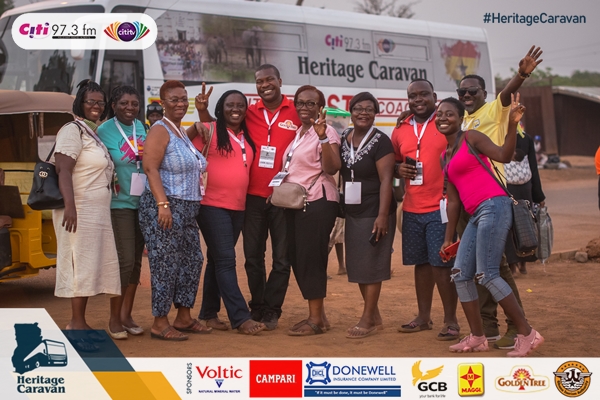
This year’s Heritage Caravan would also visit the Kakum National Park, the Bobiri Butterfly Sanctuary, Kintampo Waterfalls, Paga Crocodile pond among others.
Aside all the amazing places patrons would be visiting, there would other activities on the side like Bonfire night, barbeque, beach party and a masquerade party.
This year’s Heritage Caravan started on the 2nd of March and ends on the 9th of March.
This year’s trip is sponsored by Campari, Maggi, Golden Tree, GCB, Voltic and Donewell Insurance.
The Heritage Caravan forms part of activities to mark Citi TV/Citi FM’s Heritage Month commemorated in the month of March every year.
–
By: Kojo Agyemang | citinewsroom.com
Ghanaian models KvngsOfTheNewSchool feature in BBC documentary
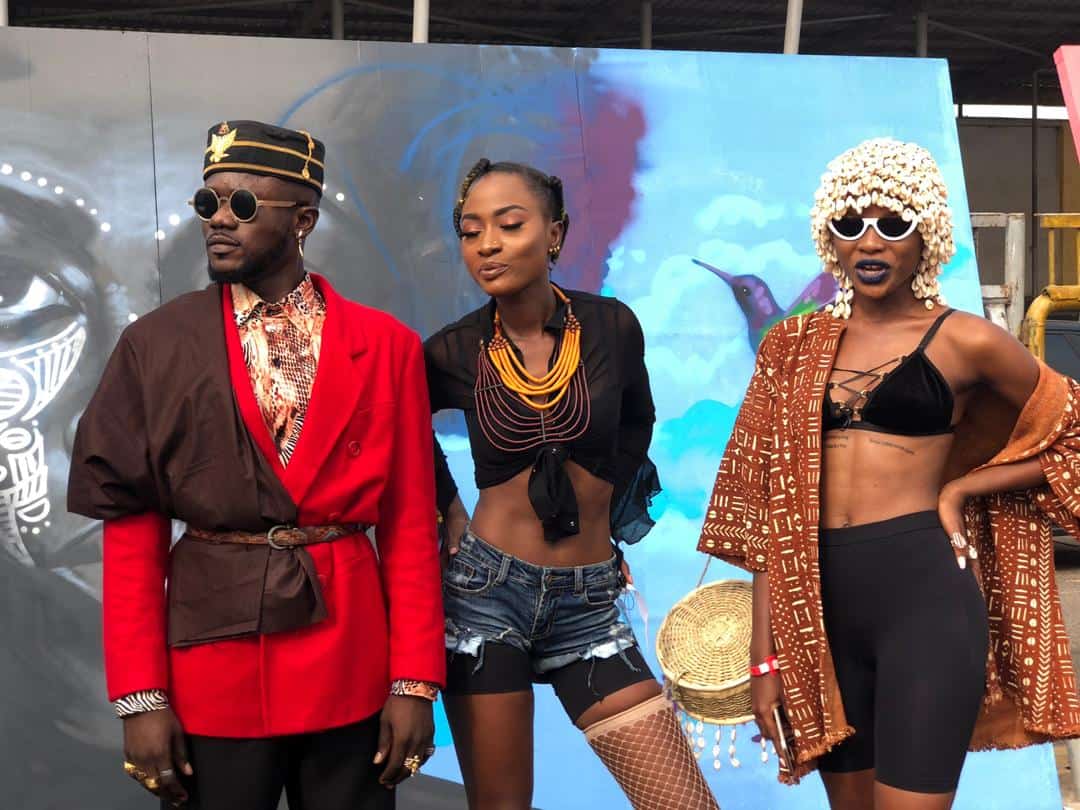
A group of models from Ghana whose unique appearance caught the eyes many at last year’s Afrochella have been featured in a BBC documentary.
The group KvngsOfTheNewSchool comprising GlennSamm, Mohammed Black, Tsutsublema and Efo Kayleb got featured in a documentary by Thomas Naadi for BBC Africa during one their fashion installation at Afrochella.
The group since this event, has made appearances at other festivals and events including Fuse ODG’s This is New Africa, Kente Party early this year in Accra.
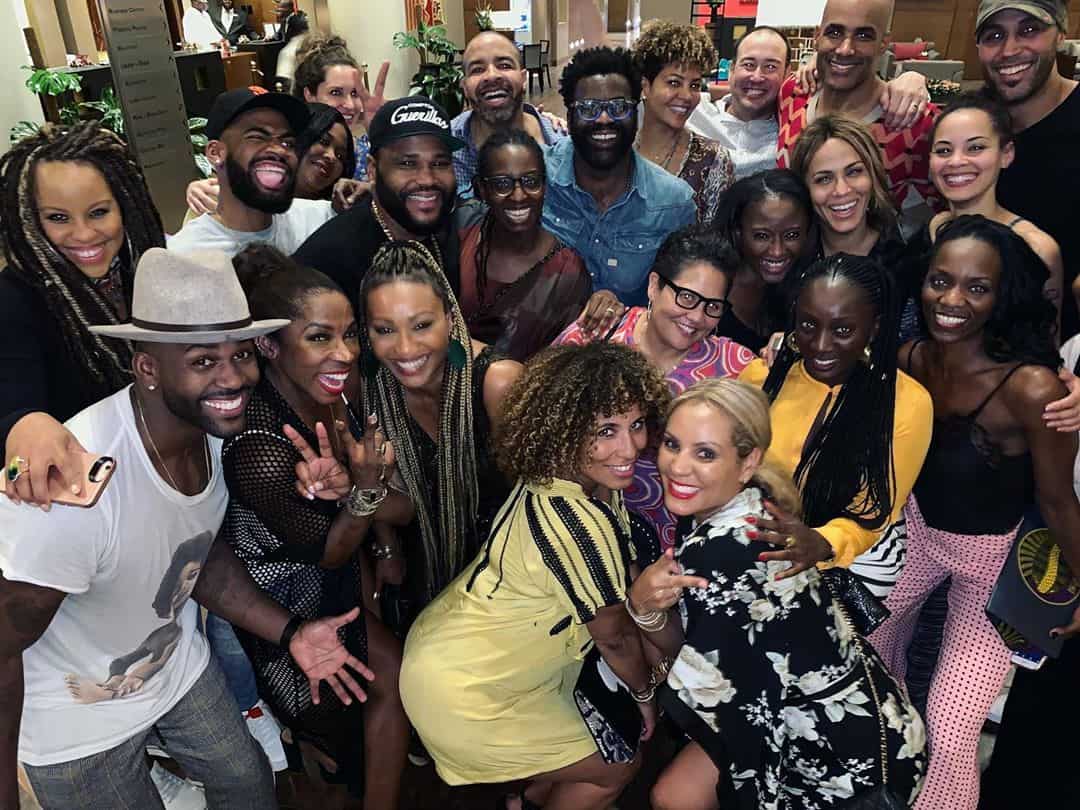 With the Year of Return being celebrated in Ghana this year, KvngsOfTheNewSchool have positioned themselves to avail themselves for activities that would require their services.
With the Year of Return being celebrated in Ghana this year, KvngsOfTheNewSchool have positioned themselves to avail themselves for activities that would require their services.
The Year of Return, Ghana 2019 is a major landmark campaign targeting the African – American and Diaspora Market to mark 400 years since the first slave vessel docked on our seas.
The programme is put together by Ghana Tourism Authority (GTA) under the auspices of the Ministry of Tourism, Arts and Culture, and in collaboration with the Office of Diaspora Affairs at the Office of the President.
As the fashion and modelling industry keeps growing in the country, the group’s feature on BBC is of great significance.
–
By: Kwame Dadzie | citinewsroom.com | Ghana
2019 Heritage Caravan: Day 2 – Patrons tour sites in Ashanti Region
Day 2 of the Heritage Caravan took patrons to the Ashanti Region after having breathtaking experience in the Volta Region.
The journey to the Ashanti Region was a little over 6 hours but the mood on the bus made it seem like it was just a stone throw.
The brief stop at the Bunso Arboretum was breathtaking. The 6.5 hectares plant conservation and research centre has over 1,000 species of plant. The area is a protected forest reserve.
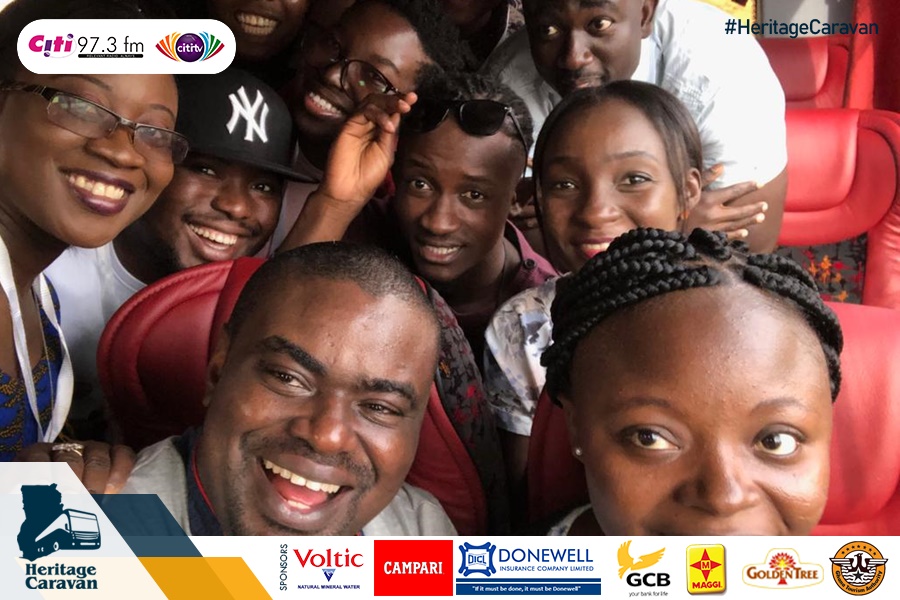
As part of efforts of the CSIR-Plant Genetic Resources Research Institute to raise funds and to diversify the attraction at its arboretum, management of the institute engaged a Ghanaian private investor to build the second canopy walkway in Ghana, modelled after that of the Kakum National Park in the Central Region of Ghana.
It took the local engineers one year to build the magnificent walkway using materials such as wood, safety net, aluminium ladder, nails, bolts and knots among others. The walkway is Two Hundred and Eighty (280) meters long, forty feet (40ft) high and has five (5) bridges.

Other features of the edifice are the six platforms and fences where tourists can rest while on tour of the walkway.
The forty (40) acres arboretum is home to in-situ and ex-situ plant species with over 600 timber trees, 110 species of birds and 300 species of butterflies.
While some the Heritage Caravan patrons were taken through horticulture lessons others patronized the canopy walk.
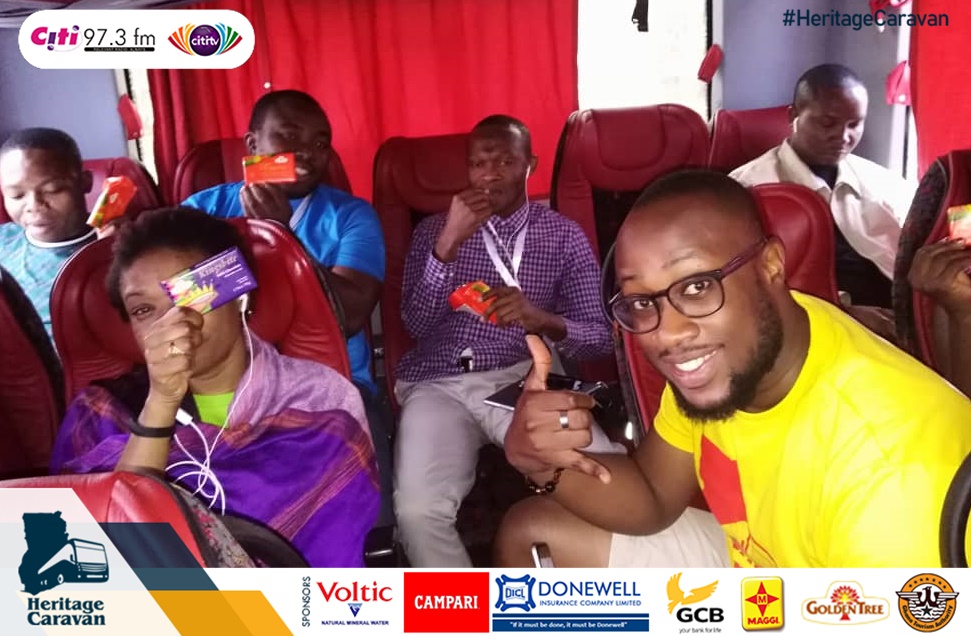
The Caravan’s final destination in the Ashanti Region was the Noda Hotel.
Patrons refused to sleep as they enjoyed a variety of activities including pool party, cultural display and a mini kente expo.
Day 3 of the journey will be taking the caravan to Yendi in the Northern Region.
The Gbewa Palace will come alive as the newly enskinned Yaa Naa will host the Heritage Caravan.
About the Heritage caravan
The Heritage Caravan gives patrons an exciting experience, as they tour various regions and exciting destinations of the country.
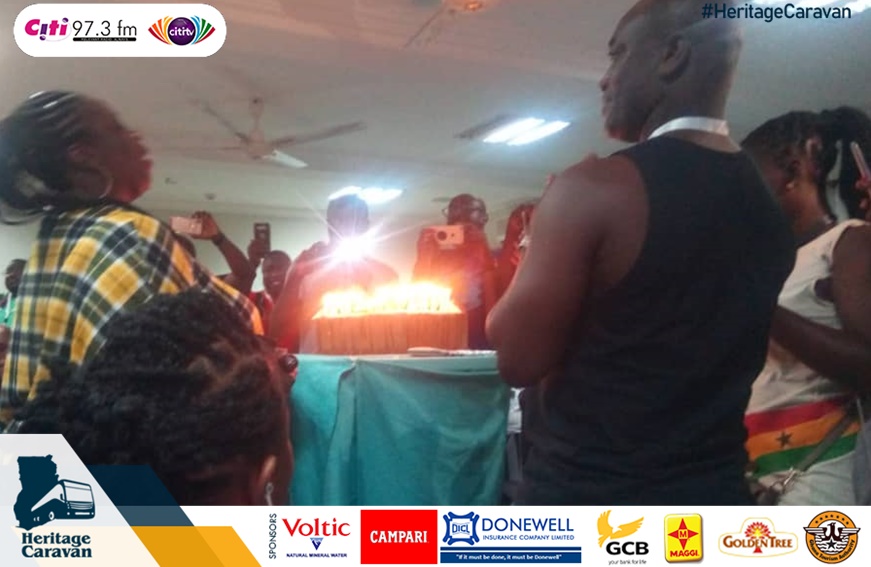
This year, the Caravan will be visiting 14 of the 16 regions but will be sleeping in 8 of them.
It’s an opportunity for Ghanaians to know their country as Ghana in the month that Ghana celebrates its independence.
The Heritage Caravan has been running for the past four years.
Over the years, patrons have been taken to the Stilt Village in the Western Region, Nzulenzu, the Adaklu Mountain in the Volta region, the Manhyia Palace in the Ashanti Region, the Boabeng-Fiema Monkey Sanctuary in the Brong Ahafo Region, the Gamashie, Jamestown in Accra, the Cape Coast and Elmina Castles in the Central Region among other places.
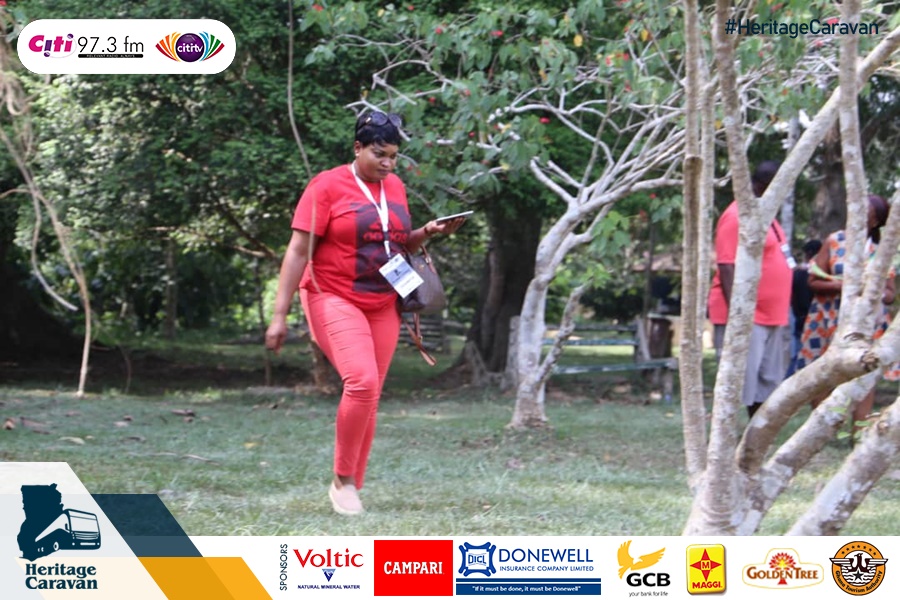
The Caravan has also taken patrons to the Mole National Park.
This year’s Heritage Caravan would also visit the Kakum National Park, the Bobiri Butterfly Sanctuary, Kintampo Waterfalls, Paga Crocodile pond among others.
Aside all the amazing places patrons would be visiting, there would other activities on the side like Bonfire night, barbeque, beach party and a masquerade party.
This year’s Heritage Caravan started on the 2nd of March and ends on the 9th of March.
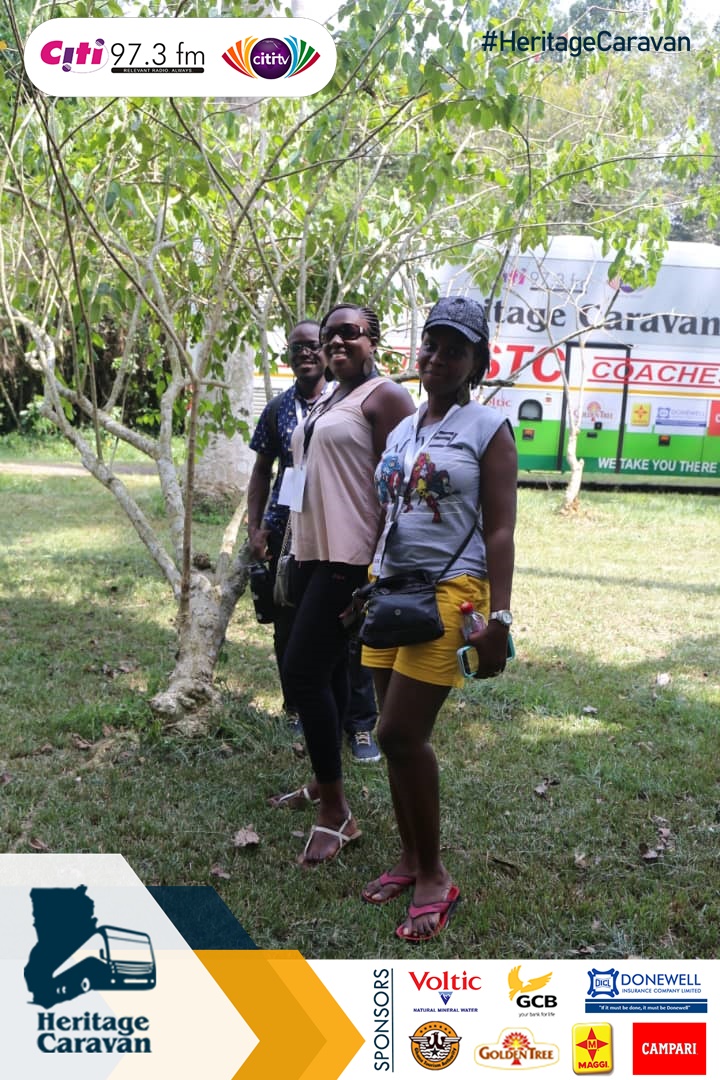
This year’s trip is sponsored by Campari, Maggi, Golden Tree, GCB, Voltic and Donewell Insurance.
The Heritage Caravan forms part of activities to mark Citi TV/Citi FM’s Heritage Month commemorated in the month of March every year.
–
By: Kojo Agyeman | CitiNewsroom
2019 Heritage Caravan: Kente and Borborbor in Volta Region mark day 1
There was hardly a moment of rest for the Heritage Caravan team on day one of the eight-day trip across Ghana, but given all they were treated to, they would certainly not have minded.
The group set off from Accra and headed to the Volta Region early on Saturday.
But before their departure, the forecourt of the Accra Metropolitan Assembly hosted the patrons to a farewell ceremony, with lots of food, drinks and great, authentic Ga music from Dromo Naa.
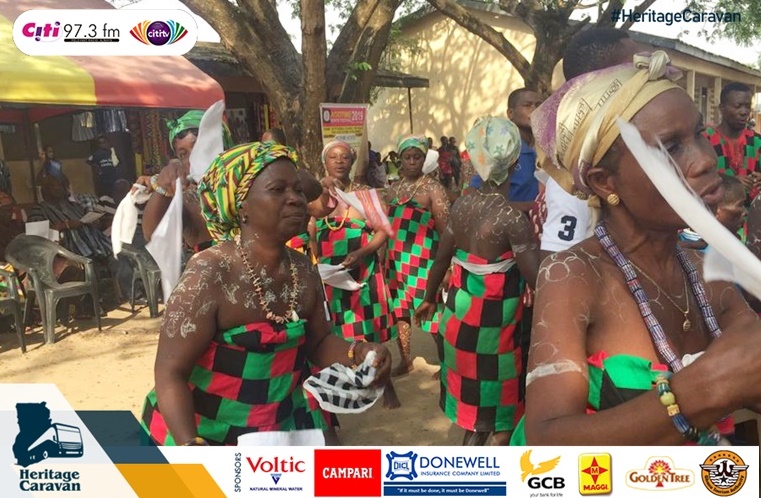
The team then arrived in the Volta Region and were treated to lots of fanfare.
At Agotime Kpetoe, the participants experienced the rich cultural heritage of the area with a display of the Borborbor dance.
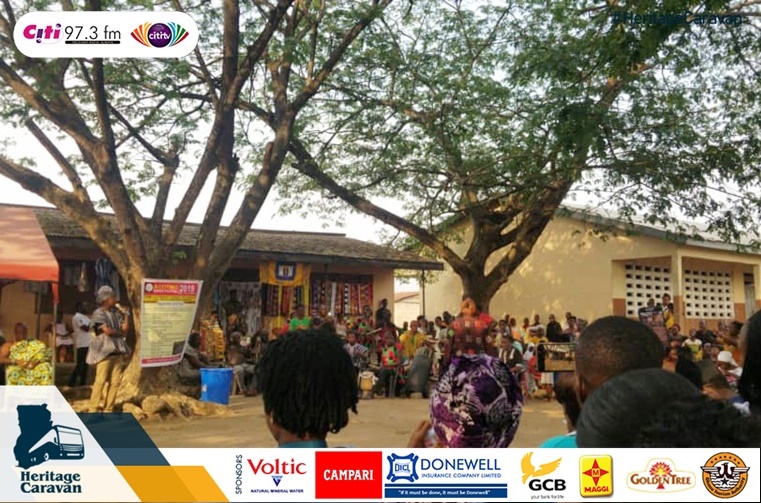
Next was an exhibition of varieties of kente and the weaving itself.
Then came the inevitable local feast. All went for the hugely popular ‘Totokpakpa’, a local delicacy made of corn dough and a sauce made with okro.
The team also visited the Ghana-Togo border crossing at Awudome where a road divided Ghana from Togo.
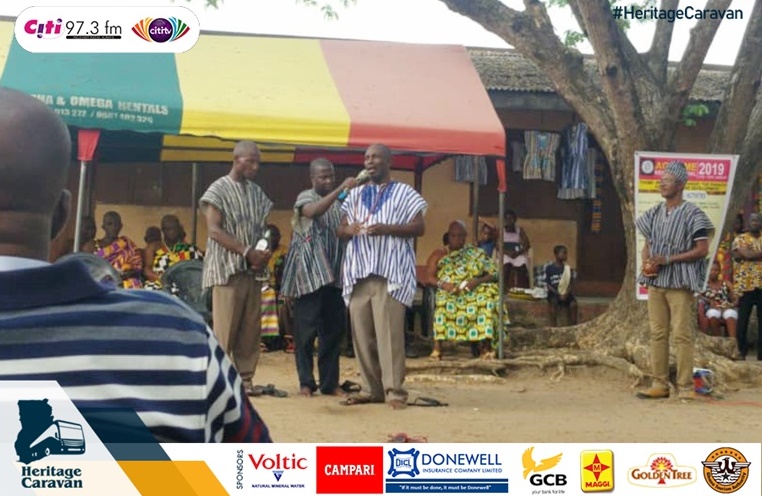
The Chief of the community, Togbe Letsu VIII was excited to receive the team.
During the mini durbar in the honour of Heritage caravan, the DCE of Agotime called on Citi FM to shine a spotlight on their unending water troubles as their only source of water is the river in the community, which they are not able to get water from for domestic use when it dries.
They appealed to the team to help construct a new water plant for the community.
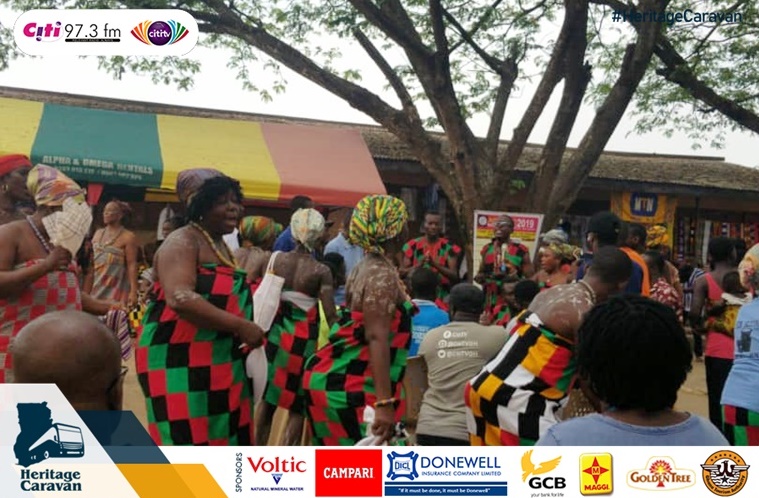
The team then wrapped up day one of the trip and moved to the Volta Serene Hotel to settle in, and have dinner.
This was not without some great music by the Kwan Pa band’, ending the night on a high.
Some of the exhausted but excited patrons expressed their joy when they spoke to Citi News.
The Heritage Caravan will head from the Volta Region to the Ashanti Region today, Sunday on day two of the fun-filled eight-day road trip. This year’s trip is sponsored by Campari, Maggi, Golden Tree, GCB, Voltic and Donewell Insurance.
–
By: citinewsroom | Ghana
Wear Ghana Month Initiative Scheduled for March 2019

The Wear Ghana Project is a campaign that seeks to encourage Ghanaians to wear made in Ghana clothes and use other fashion accessories that are locally produced. The campaign runs throughout the year but reaches its peak in March with a series of activities such as seminars, symposiums, exhibitions, fashion shows, production of a fashion magazine and an awards night to honour fashion industry players, Ghanaians and institutions whose activities have promoted the fashion industry in Ghana.
A recap of the first edition of the program indicated that, the Month of March has been designated as Wear Ghana Month. It was launched by Hon. Dr Mustapha Hamid, current Minister for Zongo Development and former Information Minister on 9th March 2018. During the launch, he emphasized the need for the Wear Ghana Month (March) to be promoted both locally and international to make Ghana a tourism destination through fashion.
Speaking to Mr. Benjamin Kojo Mills also known as (Mr Wear Ghana) who doubles as C.E.O of Street Fashion Train Foundation, and Wear Ghana Month Project said “during the Month of March, Ghanaians are entreated to be nationalistic and wear anything locally produced in Ghana like our shoes, bags, beads etc. (Made-In-Ghana).
He further explained that, Wear Ghana Month is symbolic to farmers day or teacher’s day celebrations. Having worked in the fashion industry for some time, he envisaged the need for the fashion industry players to have an occasion to celebrate the industry and its players. Street Fashion Train Foundation realized that, such a platform will enable industry players to express themselves, by talking about issues affecting the growth of the fashion industry, the prospects in it and how to build the fashion industry for everyone to benefit from hence the Wear Ghana Month Program.
“More importantly, the Wear Ghana Month program will serve as a platform that will bring all the fashion industry players together for them to have a united front in order to fight for a common Agenda “he emphasized.
He said the second edition is in collaboration with Ministry of Trade and Industry.
The Wear Ghana Month Project Secretariat hinted that Preparations are underway for them to have a successful campaign in March although there are some financial constraints.
The annual event, the Wear Ghana Month Program, being a non-profit event; needs support .Therefore, the organizers called on corporate bodies , philanthropists the Media and all Ghanaians to support the campaign financially and with be part of the programs outlined for the celebrations to enable them embark on this campaign successfully in March 2019.
The theme for the program is captured as “Ghana beyond aid through fashion”.
The programme line-up for this year includes; Float – 1st March 2019, Wear Ghana Inter fashion Schools Competition – 9th March 2019, Seminar -15th March 2019, Wear Ghana Fashion Show /Exhibition 22nd – 24rd March, 2019 and Ghana Fashion Industry Honours /Awards 31st March 2019.
The only way Ghana Fashion can grow and impact on our economy is to wear what we produce.
Source: Newsgh
In the Year of Return, what is African Diaspora returning to?
Celebrations have begun in earnest to commemorate 400 years since the first enslaved Blacks reached the shores of the new world, United States of America.
While the idea is to attract the African Diaspora to every nook and cranny of the continent, Ghana as the leader of Pan-Africanism has taken the initiative to be the central point for the celebrations. For the thousands Diasporans that are expected to troop in, one would ask, what are they returning to? For starters, Ghana is one of the countries in Africa which played a very significant role in the Transatlantic Slave Trade, becoming one of the biggest purveyors of human cargo to the Americas and Europe. Evidence abounds in the many slave dungeons, forts and castles strewn across the length and breadth of the country.
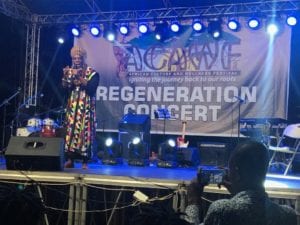
These monuments which have since become World Heritage Sites are concrete reminders of our crude and cruel history and cue that never again shall the Black man allow himself to be at the receiving end of such gross injustice and dehumanizing brutality. Following this era of darkness was colonization which also saw Ghana playing a pivotal role in this “legal slavery” until March 1957 when it became the first Black nation south of the Sahara to declare independence from its colonial imperialists. Independence brought along so many things including “Ghana.” The country was previously referred to as Gold Coast.
In 1960, Ghana attained absolute sovereignty when it became a republic, ending a period of unwanted colonization and foreign dominance. The struggle for independence for Ghana had been spearheaded by the man described by many as African Man of the Millennium, Dr. Kwame Nkrumah. This man was so passionate about Black liberation that he made it his life’s work and his famous line on Ghana’s Independence Day, “Our independence is meaningless unless it is linked up to the total liberation of the African continent,” was in furtherance to his disposition as a Pan-Africanist.
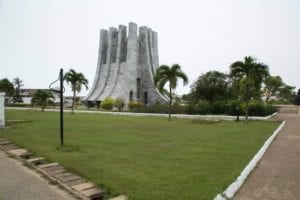
It is instructive to note that following that momentous speech, over 30 African nations broke free from colonial rule in the next decade. His charisma and strength of purpose towards a free and strong Black continent attracted the likes of Maya Angelou, George Padmore, and W.E. B. Dubois to Ghana with most of them staying for years to work to consolidate the independence that had been won.
With that, Ghana became the mecca for Blacks in the diaspora who love to embark on the pilgrimage to discovering their ancestral roots. Since then, the West African country has played host to several visitors of black descent both known and unknown with the first Black President of the US, Barack Obama coming into the country on his first visit to Africa after his inauguration in 2009.
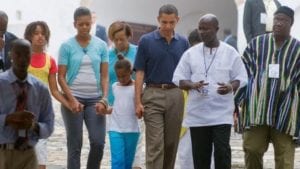
In addition to this is the fact that Ghana was the first African country to commemorate Emancipation Day and together with the Pan-African Historical Theatre Festival (PANAFEST) and other initiatives such as the Joseph Project, have given the opportunity for the Diaspora community worldwide to come home to become part of the global African Renaissance.
Fast forward to 2019, the Year of Return where Ghana has opened its doors even wider to receive the thousands who would want to be part of the celebrations. Again, why come to Ghana? Ghana continues to be the beacon of hope for Africa. With a current Gross Domestic Product (GDP) of nearly $50billion, the country has become an investment paradise attesting to its relatively conducive atmosphere for doing business. It is one of Africa’s fastest growing economy. Its capital city, Accra has become a melting pot of artistic and cultural excellence with an ever-growing skyline which gives it a more picturesque look by the day.

There is little or no argument to the fact that Ghana is the centre of the world being the closest landmark to the point at which the equator (0° latitude) and the prime meridian (0° longitude) intersect. This makes it pretty much accessible no matter which part of the world one is emigrating from. Ghana’s democratic credentials make it the envy of her peers in Africa. Having ushered itself into democratic dispensation since 1992, the country has had six peaceful general elections since that period.
Peace and security define the hallmark of Ghana as much as its legendary hospitality of the citizens. The peace is fuelled by the sense of community and camaraderie that exist among Ghanaians; visitors will find the people as some of the most gregarious in the world.
So welcome to Ghana where you will not just find our internationally acclaimed Jollof Rice, but Banku with grilled Tilapia, Waakye with its accompaniments, Tuo Zaafi and the almighty Fufu with Aponkye Nkrakra or Palm nut soup and the many varieties of soups not just satisfying, but also are sure to bedazzle your taste buds. As much as you might find pizza, burger or hot dogs anywhere you go across the country, roasted plantain with peanuts, buff loaf, and roasted maize are reliable tummy fillers anytime, anywhere. Asana and Sobolo will help drown these foods for easy digestion.

You will find in Ghana, like in every other nation on the planet, a country which is far from being perfect but in acknowledging this, citizens are making efforts at ensuring their comfort in their own way.
And that is why it is imperative that you take a trip to Kaneshie, Makola or Okaishie markets to get a better understanding of the entrepreneurial side of the average Ghanaian, and that is when you are in Accra. Kumasi, the second largest city and capital of the Ashanti Kingdom also has very large markets with many others across the country that are worth seeing. In the evenings, the mini versions of these markets can be seen as well, adding to the vivacity of the country’s nightlife especially within city centres and big towns.
Ghana has birthed some of the finest human resources in the world. Kofi Annan (Former UN Secretary-General), Abedi Pele, Azumah Nelson (Sports Icons), Komla Dumor ( Former BBC Broadcaster), Prof. Francis Allotey (Mathematician and Physicist), Prof. Kwabena Frimpong Boateng (Physician and cardiothoracic surgeon) Ashitey Trebi-Ollennu (Robotics Engineer at NASA) are a few of the many who have helped and continue to shape the world in their respective work disciplines. These are beside the many others around the world who trace their ancestry to the motherland. Boris Kodjoe, Oswald Boateng, Idris Elba, Jerome and Kevin-Prince Boateng, Abraham Attah, Bozoma Saint John are just a handful who are still giant strides in their fields of endeavour.

Nature’s best secret is kept here on this west coast of Africa. The flora and fauna, the large expanse of rainforest, the national parks, and botanical gardens are just a few of nature’s provisions which define the green in our national flag. Pristine beaches, waterfalls, lakes, and rivers (both and natural) will ensure that an adventure with water is made complete. Home to the friendliest crocodiles, a large variety of monkey species and birds, the country’s wildlife is one of the most diverse in the world.
On the arts scene, you hear in Ghana some of the best sounds in the world; so whether you are a jazz, R&B, Hip Hop fan or like to hear authentic African Highlife music, then you are welcome. Ghana has produced Music Greats such as the Osibisa Band, Kojo Antwi, Daddy Lumba, Amakye Dede, Rocky Dawuni with young acts such as Sarkodie, Stonebwoy, Samini, Shatta Wale, Fuse ODG and many others flying high on the global music scene. A vibrant film industry also thrives in Ghana and has birthed Ghallywood and Kumawood; the respective English and local language speaking sub-industries.
A visit to the many art markets and centres in every part of the country gives visitors inkling into how creative the local people are. Here, all manner of artifacts can be seen, and the world acclaimed Kente fabric is a further testament to the sheer brilliance and creativity of the Ghanaian. With intricate patterns and a splurge of assorted colours, Kente gained much more notoriety when the Congressional Black Caucus of the US Congress wore it in protest during President Trump’s first State of the Union address.
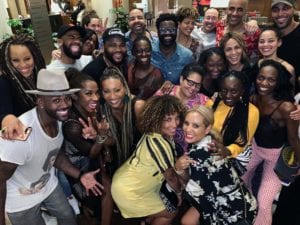
Festivals are ostentatious part of the Ghanaian culture; there is practically a festival or two being celebrated at different parts of the country all throughout the year. Peak festival periods, however, are between, July and November where one can be witness to a rich and beautiful display of traditional dance, chiefs and queen mothers in their full regalia propped up in palanquins and an endless display of street activities. Like many other celebrations in Ghana, festivals are always elaborate and the pomp and pageantry that accompany them are a sight to behold.
Sweetening all this is the tall list of activities that have been planned to commemorate the Year of Return, so yes, there are many reasons why should be in Ghana in 2019.
And if for nothing at all, one thing is guaranteed, the warmth of the smiles of the friendliest people on earth that meet you right at the airport in Accra to Zabzugu in the north; who knows, it might give you a clue as to how happy our ancestors were living on their own land.
By: Samuel Obeng Appah, Content Editor – VoyagesAfriq Travel Magazine
Ghana is home, we are coming – Jamaica endorses Year of Return
Jamaica’s Minister of Tourism, Hon. Edmund Bartlett and the Minister of Culture, Gender, Entertainment and Sport, Hon. Olivia Grange have jointly endorsed the “Year of Return, Ghana 2019”.
The Year of Return is an initiative of the government of Ghana which is intended to encourage people of African descent to visit Ghana.
Related Story: CNN Travel lists Ghana as place to visit in 2019
Both Ministers commended the President and people of Ghana for taking this initiative to cement Ghana’s Pan African Legacy dating from the relationship amongst leaders of the Caribbean and Ghana.
Honourable Grange said Jamaica looks forward to a successful year of return. “We will work with Ghana towards a successful year. Jamaica observes the international Decade of People of African Descent and so it is very timely that we work together.”
She added that “as Jamaicans, we’re proud to see that our Reggae music will form the soundtrack for the Year of Return.”
The Minister of Tourism, Arts and Culture of Ghana, Hon. Catherine Afeku led the delegation made up of Members of Parliament (MPs) and representatives of Ghana Tourism Authority(GTA). The delegation included Hon. Alex Agyekum, Hon. Kobla Wayome, Hon. A.B. A Fuseini, Hon Kofi Amoakohene and Mr. Akwasi Agyeman of GTA.
Related Story: Year of Return to attract 500,000 from diaspora
Hon. Afeku said Ghana is ready to welcome the global African family home. “The ease of Visa acquisition, upgrades of Tourism and hospitality facilities, capacity building are all being tackled through an inter-ministerial committee with anticipated positive results.”
Come March 2019, the Jamaica-Ghana Homecoming Festival (Jagha) will feature as part of the activities to commemorate the year of return and celebrate African survival.
Source: Ghanaweb
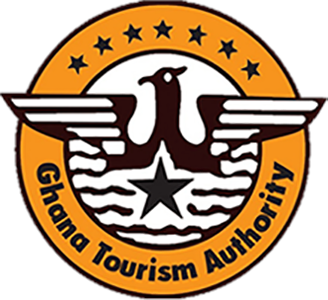

 Call Center
Call Center
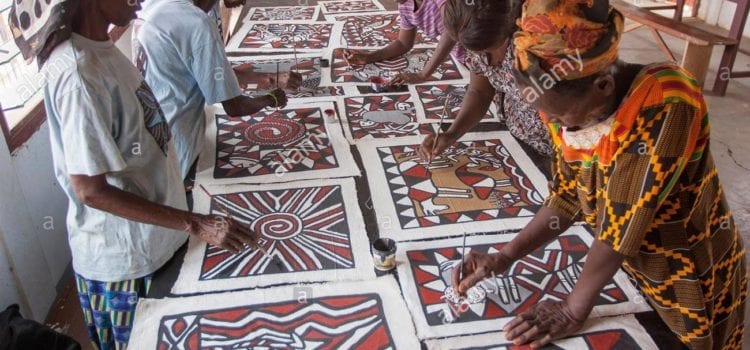
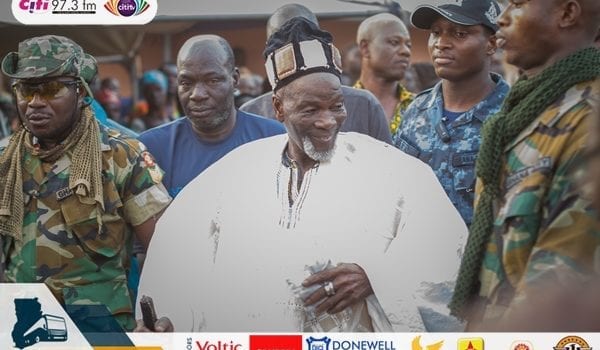
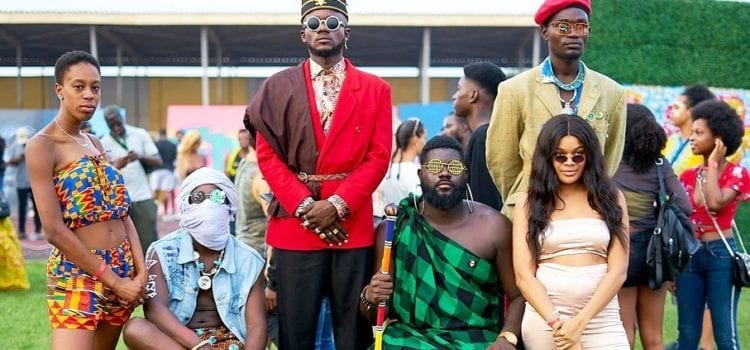

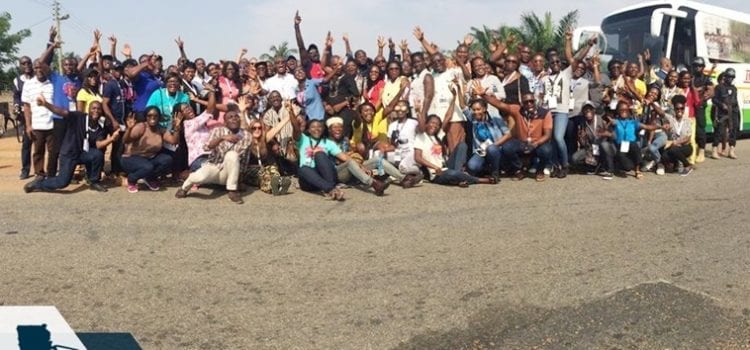
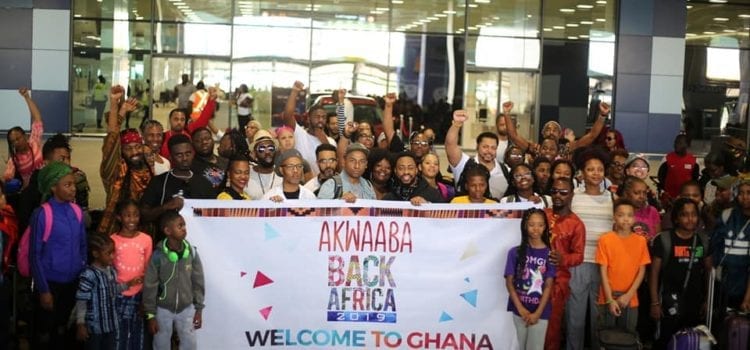
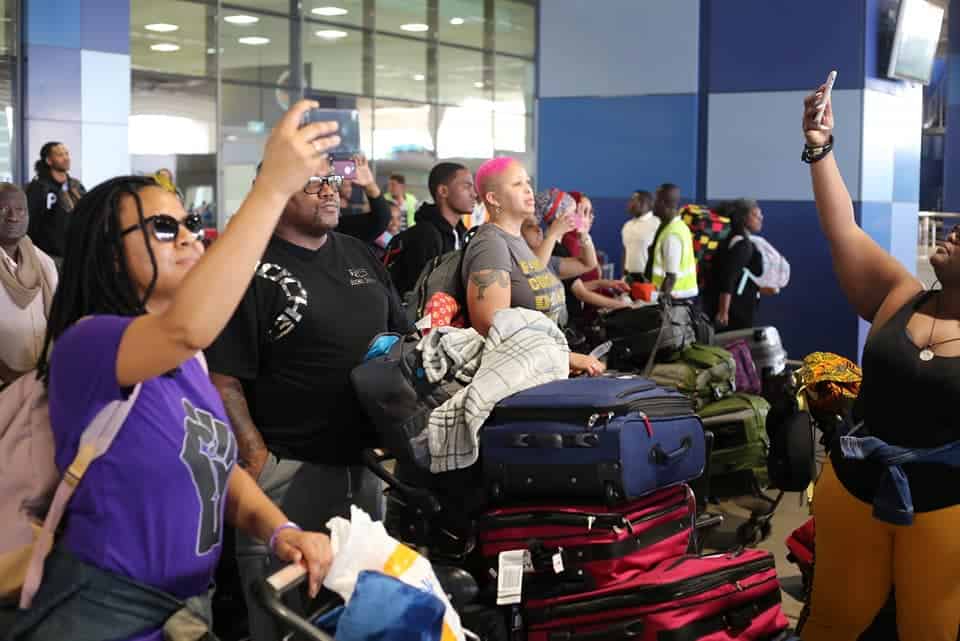
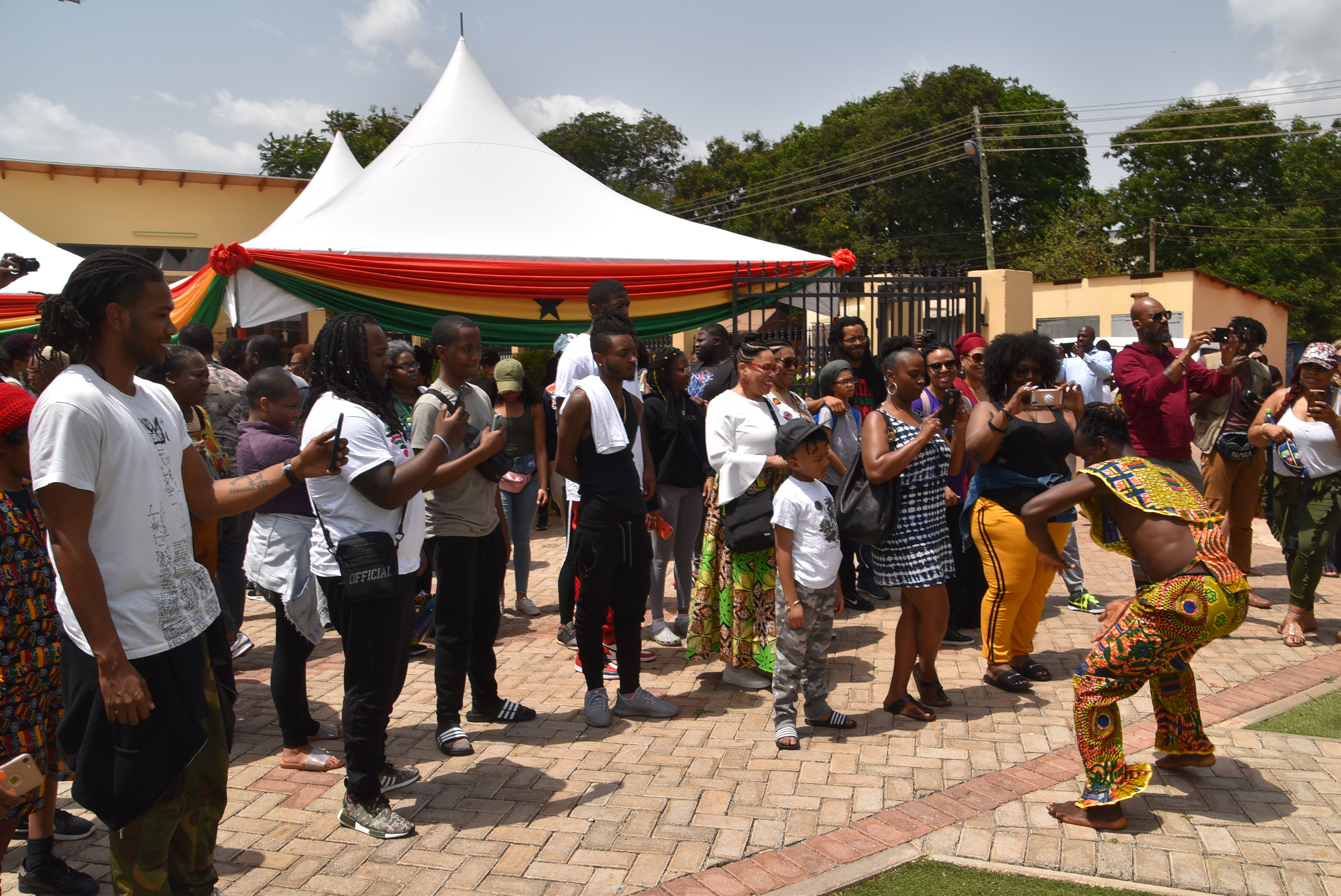
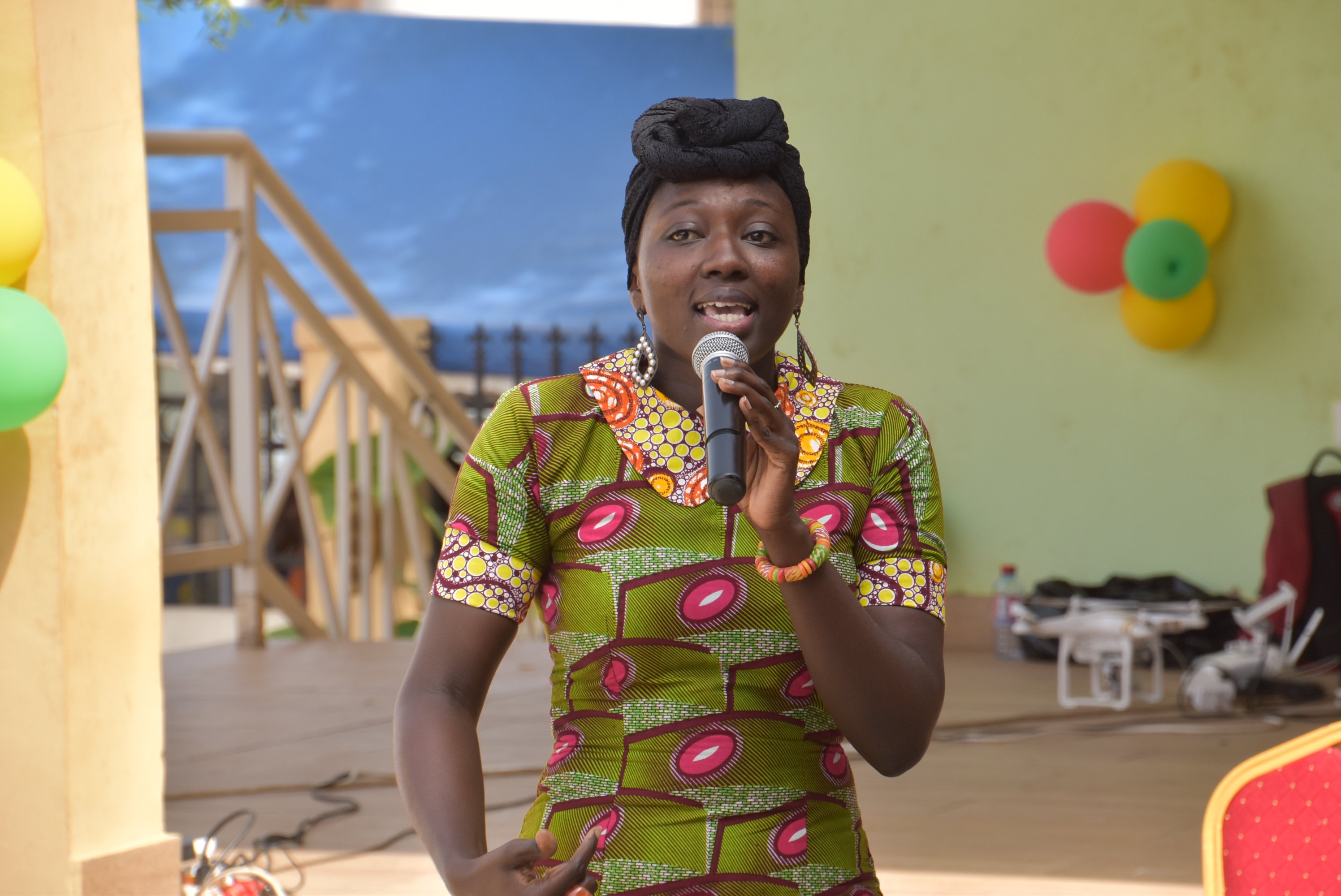
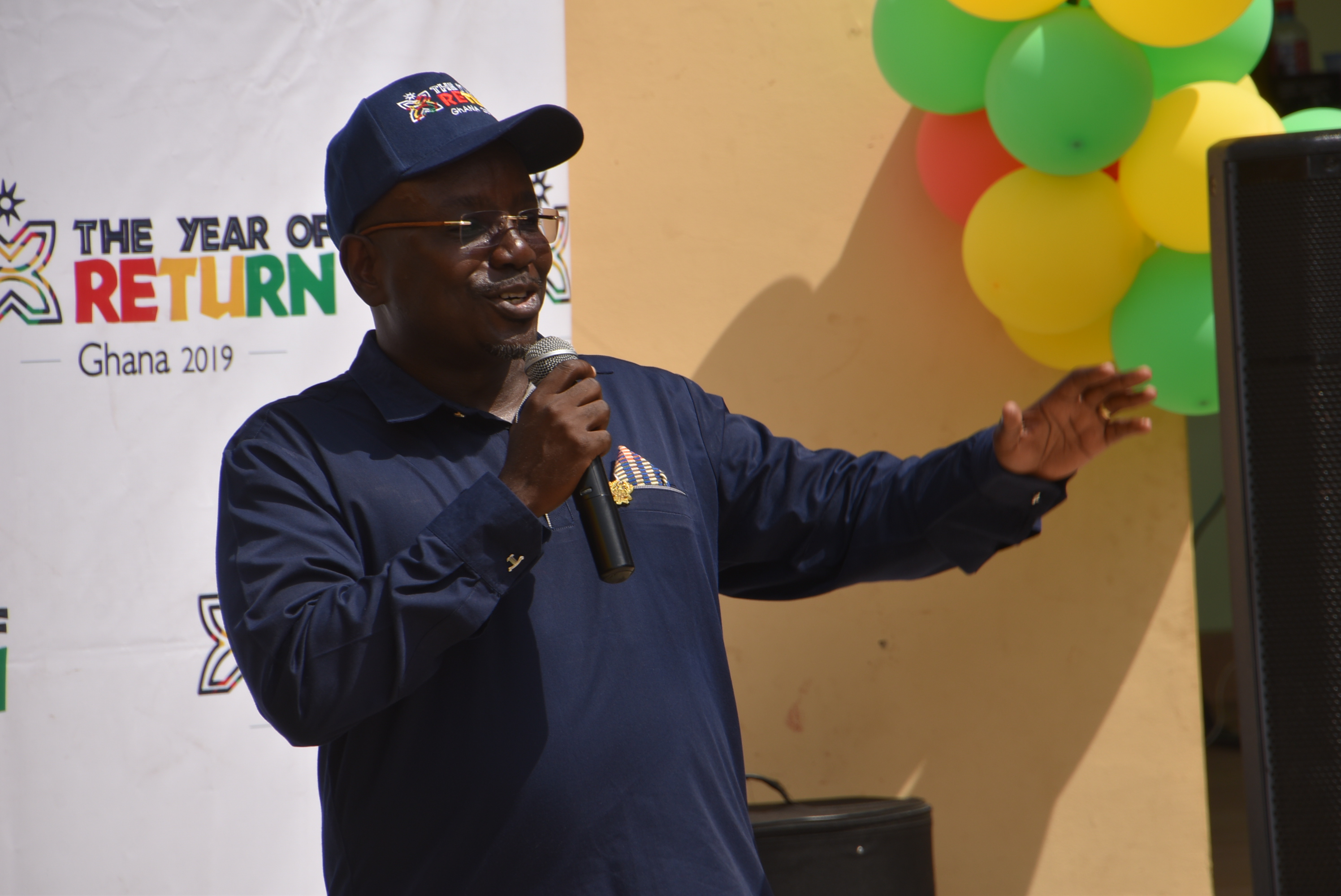
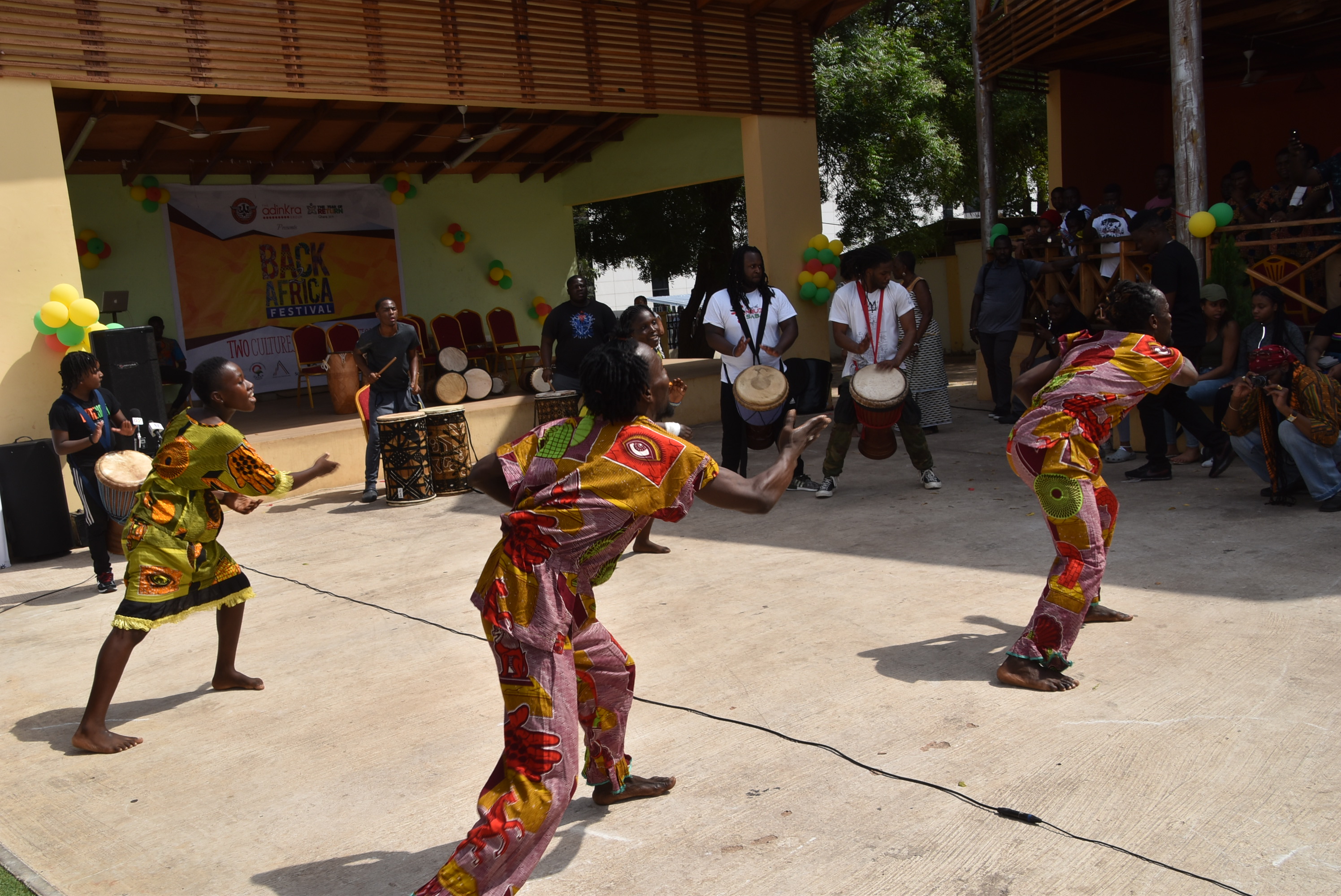
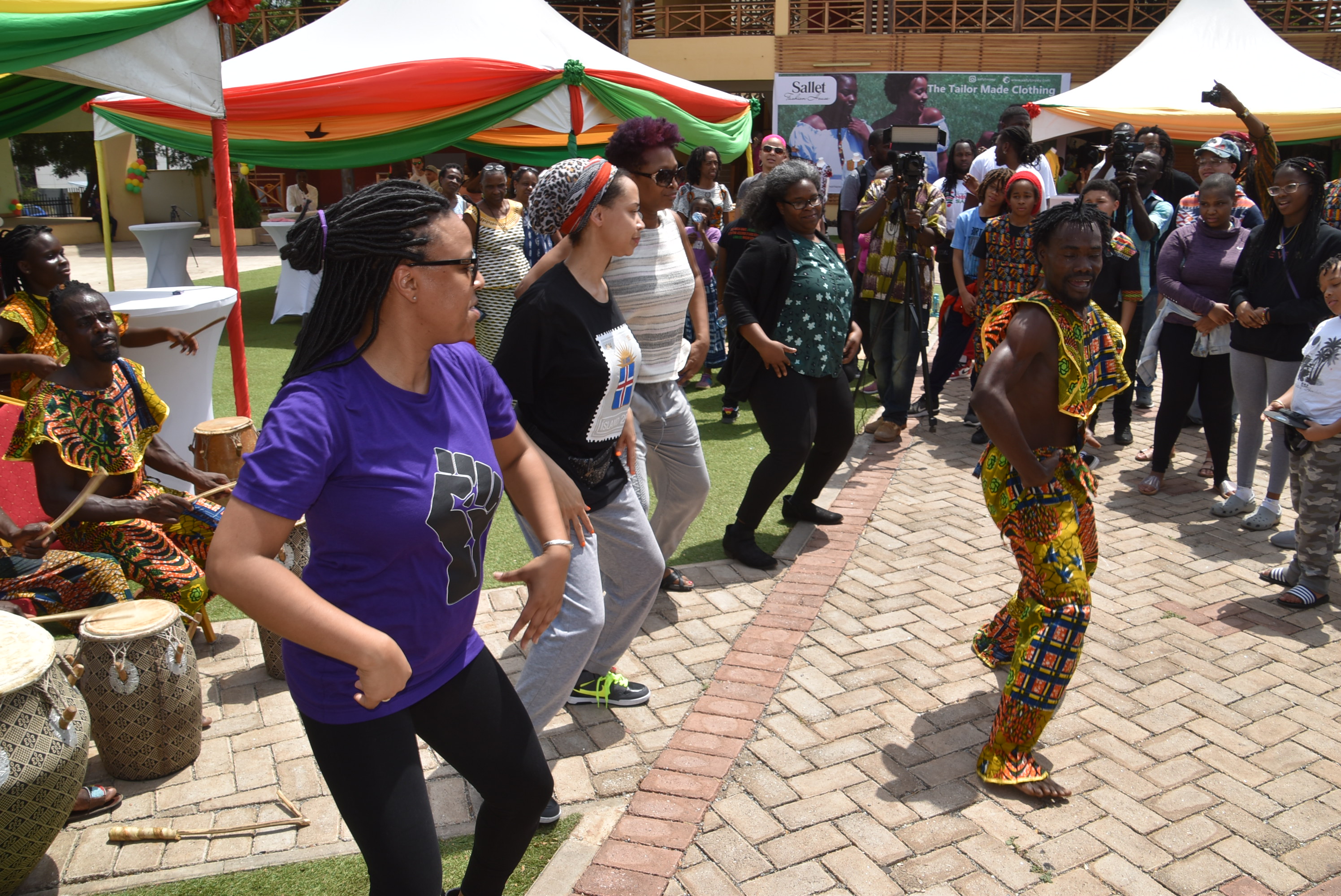
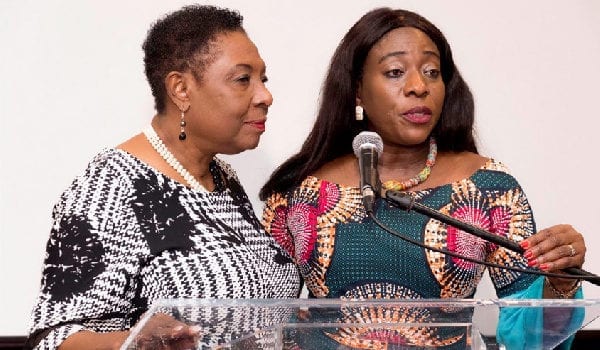
 Call Center: 0307007100
Call Center: 0307007100